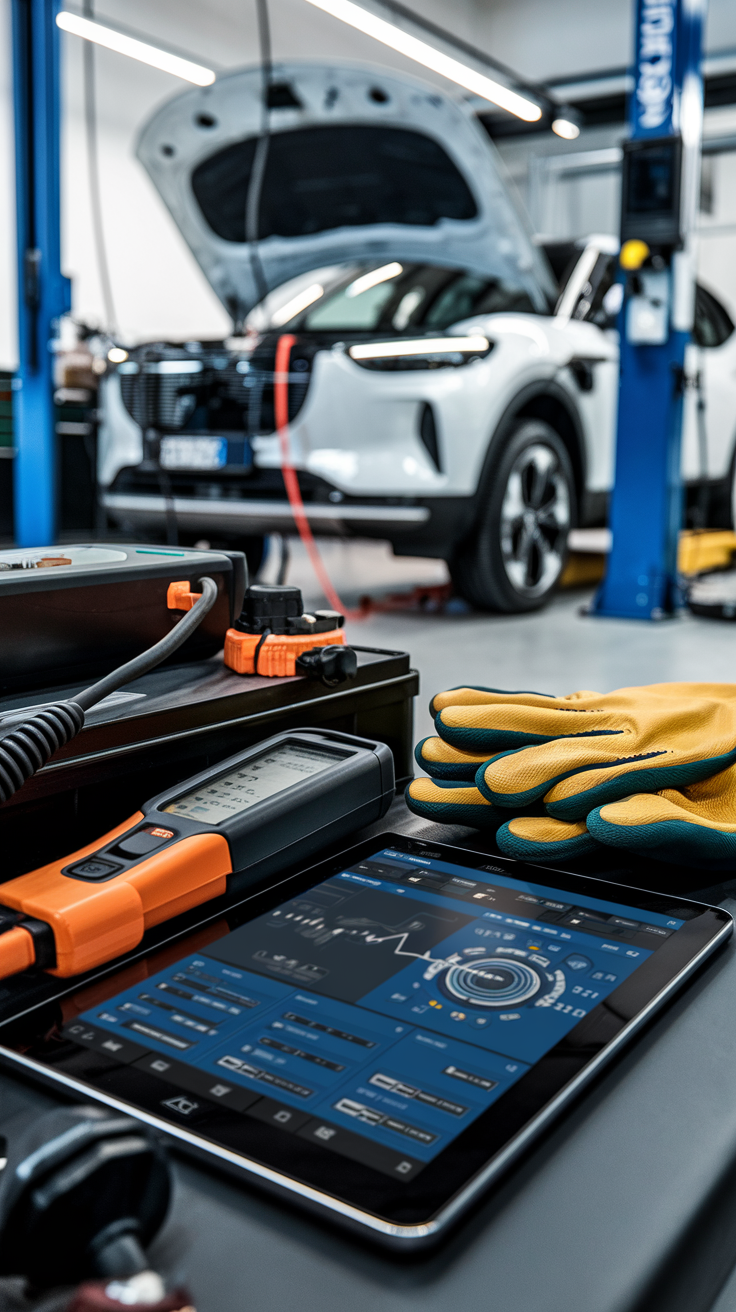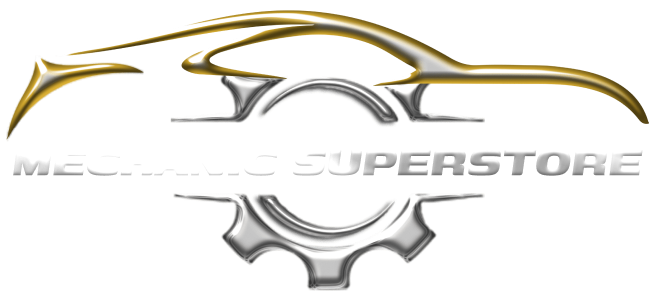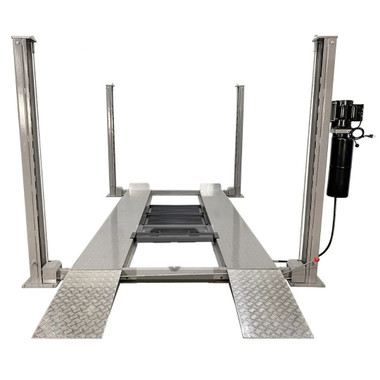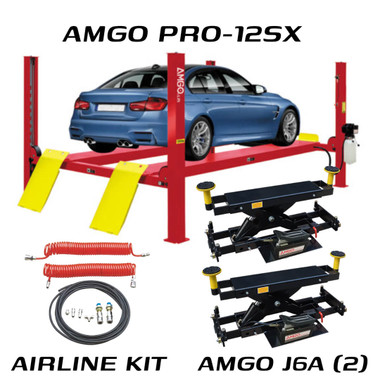The Growing Demand for Electric Vehicle (EV) Service Equipment
Estimated 0 min read
The automotive industry is undergoing a significant transformation with the rise of electric vehicles (EVs). As more consumers transition to EVs, auto repair shops must evolve to meet the demand for specialized EV service equipment. Unlike traditional internal combustion engine (ICE) vehicles, EVs come with unique maintenance and repair challenges that require new tools, updated training, and optimized shop workflows.
Shops that embrace this shift early can position themselves as industry leaders, attract more customers, and future-proof their business. This article explores the growing demand for EV service equipment and provides actionable insights on optimizing shop layout, improving workflow, and investing in the best tools to remain competitive.
1. Understanding the Need for EV Service Equipment
The adoption of electric vehicles has accelerated due to advancements in battery technology, increased government incentives, and growing consumer awareness about sustainability. This shift presents challenges for traditional auto repair shops that are not yet equipped to handle EV-specific maintenance and repairs. Unlike internal combustion engine (ICE) vehicles, EVs require specialized equipment for diagnostics, battery maintenance, and electrical system servicing.

Many mechanics express concerns about the complexity of EV repairs, especially high-voltage systems that require additional safety measures. Shops that lack proper training and equipment may struggle to diagnose and repair EVs efficiently, leading to longer repair times and increased costs for both the business and the customer. Investing in high-voltage insulation tools, battery lifting equipment, and advanced diagnostics for electric drivetrains ensures shops stay competitive and profitable.
For shops looking to upgrade, resources like Mechanic Superstore’s EV Tool Collection provide essential EV servicing equipment, making the transition smoother.
2. Optimizing Shop Layout for EV Repairs
As EV servicing becomes more common, shop layouts must evolve to accommodate new equipment and safety protocols. Unlike gasoline-powered vehicles, EVs require designated spaces for battery handling and high-voltage system diagnostics. Creating a dedicated EV service bay ensures that technicians have the necessary tools and environment to work safely and efficiently.
Space planning is crucial when dealing with EVs, as their battery packs often need to be removed and serviced separately. This requires specialized lifting equipment and adequate floor space to handle large, heavy components safely. Installing insulated workstations and clearly marked high-voltage zones reduces risks and improves workflow. Shops should also consider upgrading ventilation systems to handle cooling needs during battery repairs.
A real-world example is AutoTech Garage, which restructured its workspace by adding a high-voltage battery service area and saw a 35% increase in efficiency. By optimizing their shop layout, they not only reduced technician downtime but also attracted more EV customers.
3. Improving Garage Workflow for Maximum Efficiency
A well-organized workflow minimizes downtime and enhances productivity. With EV repairs, efficiency starts with proper scheduling and job allocation. Service advisors should be trained to identify EV-specific issues early on, ensuring that necessary tools and parts are readily available before work begins.
Many auto shops transitioning to EV repairs find it beneficial to integrate digital workflow management software that tracks service progress in real-time. This allows for streamlined diagnostics and repair processes, reducing turnaround time. Advanced EV scanning tools, like the Top EV Diagnostic Tools at Mechanic Superstore, allow technicians to quickly identify system faults and optimize troubleshooting time.
Continuous training is key. Regular training sessions ensure mechanics stay updated with the latest repair techniques and safety standards. Partnering with manufacturers or enrolling in specialized EV technician certification programs enhances credibility and builds customer trust.
4. Must-Have Tools for EV Service and Repairs
Equipping an auto shop with the right tools is essential for efficient EV maintenance. One of the most critical tools is a high-voltage insulation tester, which ensures that electrical components are safe to work on. Battery lifting equipment is another must-have, as EV battery packs can weigh hundreds of pounds and require precision handling.
Protective gear is crucial when dealing with high-voltage systems. Insulated gloves, face shields, and arc flash protection suits safeguard technicians from electrical hazards. Additionally, specialized diagnostic software is needed to interface with EV control modules, detect issues, and perform necessary updates.
Charging infrastructure should also be part of a shop’s investment. Having a high-speed EV charger allows technicians to test vehicles efficiently after repairs. Without access to proper charging, diagnosing battery performance and system integrity becomes challenging.
5. Investing in the Future: Why EV Service Equipment Matters
Auto shops that invest in EV service equipment position themselves as industry leaders. As the number of EVs on the road increases, customers will seek out repair shops that specialize in electric vehicle maintenance. Offering EV services not only attracts new customers but also future-proofs the business against declining demand for traditional combustion engine repairs.
The financial benefits of EV servicing extend beyond direct repairs. Shops can offer battery health assessments, software updates, and EV performance optimizations as additional services. With many EV manufacturers requiring specialized tools for proprietary systems, becoming an authorized EV service center can lead to lucrative partnerships and increased business credibility.
Consider Jim’s Auto Service, a repair shop that embraced EV servicing early on. By adding EV battery testing and diagnostic services, they increased annual revenue by 20% in just two years, proving that adapting to industry trends can be highly profitable.
The demand for EV service equipment is rapidly growing, and auto shops must adapt to remain competitive. By optimizing shop layout, improving workflow, and investing in the right tools, businesses can efficiently cater to the needs of EV owners. Investing in high-quality EV service tools and equipment today ensures long-term success as the automotive landscape continues to shift towards electrification.
If your shop is ready to upgrade, explore the EV Service Equipment at Mechanic Superstore to stay ahead of the competition.











